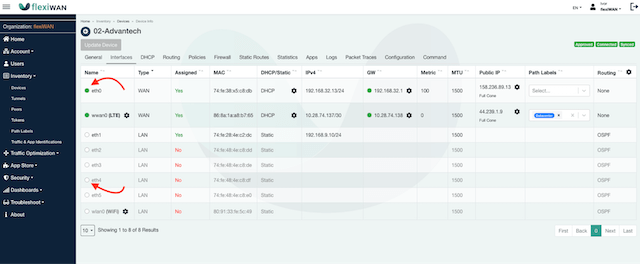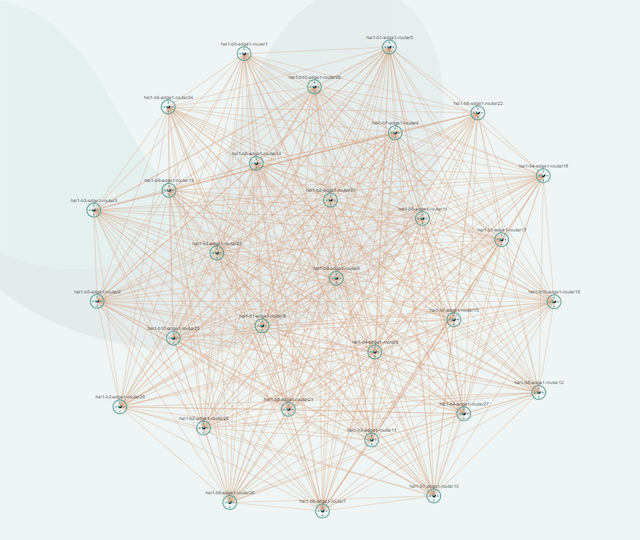Hello BGP
From Border Gateway Protocol (BGP) support to Quality Based Routing improvements and a host of other upgrades, the latest flexiWAN v 5.3.1 release is poised to redefine the way you manage and optimize your network.
Updated May 10, 2024

In the ever-evolving landscape of networking solutions, staying ahead of the curve is crucial. Enter flexiWAN version 5.3.1—a groundbreaking release packed with enhancements designed to elevate your networking experience.
Enhanced Quality Over Direct Internet, Support for GCP, and Other Enhancements to Improve Your Experience With flexiWAN
The latest flexiWAN release, version 5.3.1, brings Border Gateway Protocol (BGP), Quality Based Routing support for internet breakout, interface status reporting, and much more!
Support for BGP
We’re pleased to announce that the new flexiWAN version brings BGP support. With it, flexiWAN can peer with other Autonomous System Numbers (ASN), whether public or private ones. This allows exchanging routing information between flexiWAN and other 3rd party network routers, cloud providers and others.
When using BGP between flexiWAN, all that is required is to enable BGP; the rest of the work is handled by flexiWAN.
Our own Peering functionality, which allows connecting to 3rd party network devices or cloud providers, has been upgraded with BGP support. This way, one can exchange routing information using IPsec/IKEv2 tunnels! Read more documentation about BGP here.
Quality Based Routing Improvements
QBR is part of our application-based routing feature, Path Selection. It is recommended to be used with delay-sensitive applications, such as video or voice, to provide a good quality of experience.
With this flexiWAN version, QBR has been enhanced to provide this capability also for local internet breakout / DIA links, thus providing seamless failover in cases of brownouts and blackouts. Learn more about it here.
A Few More Updates and Upgrades
With this version, flexiManage will show each interface link status. This feature provides a quick way to verify whether a physical cable is plugged in or if a link is up.
The new flexiWAN version brings a very important feature, the ability to start vRouter even if an interface has no IP. This feature comes very handy when using multiple WANs, where for example, LTE may be down or have low signal strength. In this case, flexiWAN vRouter will still be able to start.
The PPPoE feature has been upgraded with better stability and the ability to update PPPoE settings even after the device is registered with flexiManage. In this case, PPPoE can be added from flexiEdge even if the device is registered already.
Lastly, flexiWAN’s tunnel capabilities have been optimized and improved. We’ve managed to reach more than 1000 tunnels per *single* flexiEdge device with only 2 CPU cores and 4GB of memory.
Our documentation pages have been updated and improved. Bug fixes and issues are resolved with this release, please check out flexiWAN version 5.3.1 release notes for more details.









